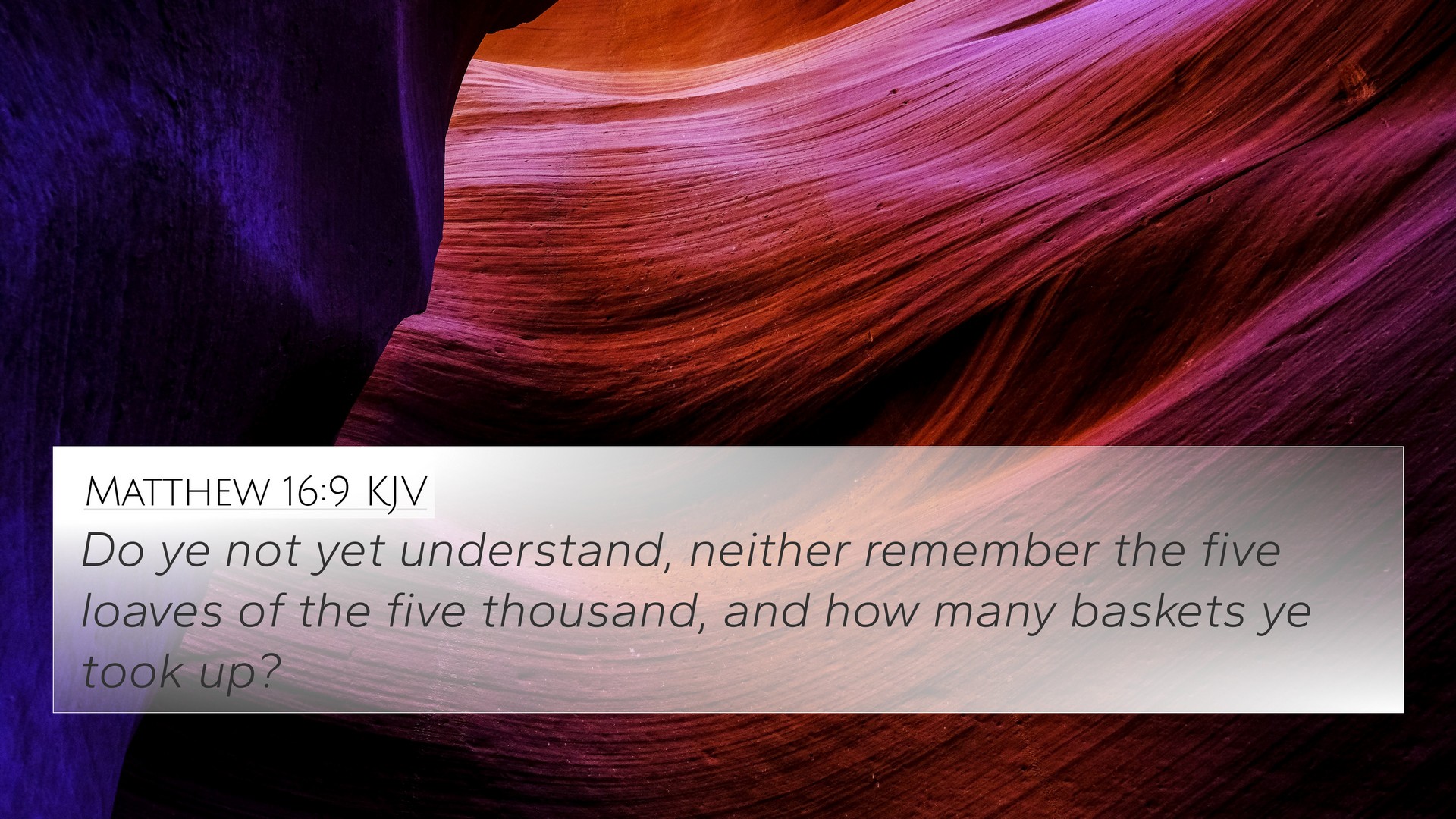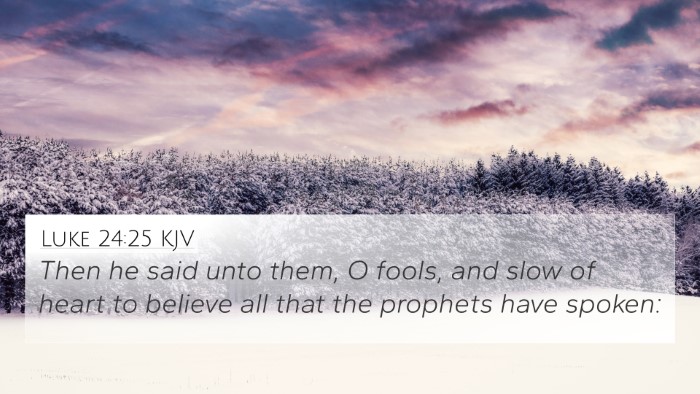Understanding Matthew 16:9
Matthew 16:9 reads: "Do you not yet understand, or remember the five loaves of the five thousand and how many baskets you took up?" This verse emphasizes the importance of faith and remembrance of God's provisions. The context involves Jesus addressing His disciples, reminding them of the miracles they have witnessed and encouraging them to understand the spiritual truths behind those miracles.
Summary of Insights
The following insights summarize various public domain commentaries on Matthew 16:9:
-
Matthew Henry:
Henry emphasizes the need for understanding God's miracles as signs of His providence. He suggests that the disciples' initial inability to comprehend these events highlights a broader theme of spiritual blindness and the necessity for deeper faith.
-
Albert Barnes:
Barnes points out that the disciples had experienced significant miracles but still struggled with doubt. He highlights that Jesus' question serves as a rebuke to their lack of faith and remembrance, urging them to learn from their past experiences.
-
Adam Clarke:
Clarke elaborates on the importance of reflection on past provisions by God. He notes that the reference to "five loaves" serves not only as a reminder of physical sustenance but also as a symbol of spiritual abundance that they must not forget.
Connections between Bible Verses
Matthew 16:9 holds various connections to other biblical scriptures. Here are some key cross-references:
- John 6:1-14: This passage recounts the feeding of the five thousand, directly linking to the bread miracle Jesus mentions.
- Psalm 78:19: It speaks about Israel questioning God’s provision, reminiscent of the disciples' doubts.
- Matthew 14:15-21: The story of the miraculous feeding reiterates the importance of recognizing God’s blessings.
- Matthew 15:36: Jesus' action of blessing and breaking bread acts as a theme consistent with the verse in Matthew 16:9.
- Luke 9:13-17: This provides another account of the same miracle, underscoring its significance in Jesus' ministry.
- Mark 8:17-21: Here, Jesus discusses their hardness of heart, indicating the disciples’ struggle to grasp spiritual truths.
- 1 Corinthians 11:24: Paul speaks about breaking bread, linking past miracles to present communion practice.
Comparative Bible Verse Analysis
When examining Matthew 16:9 in light of other passages, we notice recurrent themes, such as doubt and the importance of spiritual understanding. Below are further insights based on comparative analysis:
- Doubt vs. Faith: The contrast between human doubt and divine provision is a recurring theme throughout scripture.
- Spiritual Blindness: The failure to see God’s hand in miracles is illustrated in multiple passages from both Testaments.
- The Role of Memory: Remembering God’s acts of provision is vital in both the Old Testament and the teachings of Jesus.
Thematic Bible Verse Connections
Matthew 16:9 serves as a reminder that faith must be grounded in an understanding of God's previous works. This theme connects to:
- Hebrews 11:1: Faith is described as the assurance of things hoped for, bridging the gap between past miracles and present faith.
- Romans 10:17: The importance of hearing and understanding God’s word resonates with the disciples' need to remember.
- 2 Timothy 1:5: The sincere faith passed down through generations underscores the value of memory in nurturing faith.
Bible Verse Parallels
Parallels to Matthew 16:9 can be found in verses that also emphasize remembering past miracles as a steadfast means of strengthening faith. Examples include:
- Deuteronomy 8:2: The people are reminded to consider the whole way that God has led them.
- Luke 22:19: Jesus instructs to remember Him through the breaking of bread.
- Exodus 12:14: Celebrating the Passover serves as a vital remembrance of God's deliverance.
Using Bible Cross-References
To better comprehend verses like Matthew 16:9, utilizing tools for Bible cross-referencing can greatly enhance understanding. Here are some methods:
- Bible Concordance: Helpful for finding related verses based on keywords.
- Bible Cross-Reference Guide: A structured approach to identifying connections.
- Cross-Reference Bible Study: Engaging in studies that highlight thematic links across scripture.
Conclusion
As you reflect on Matthew 16:9, consider how Jesus urges us to connect the dots between our experiences and the spiritual truths they convey. Remembering God's provisions strengthens our faith and helps us navigate our spiritual journey. Considering biblical cross-references fosters a deeper understanding and appreciation of God's word.










